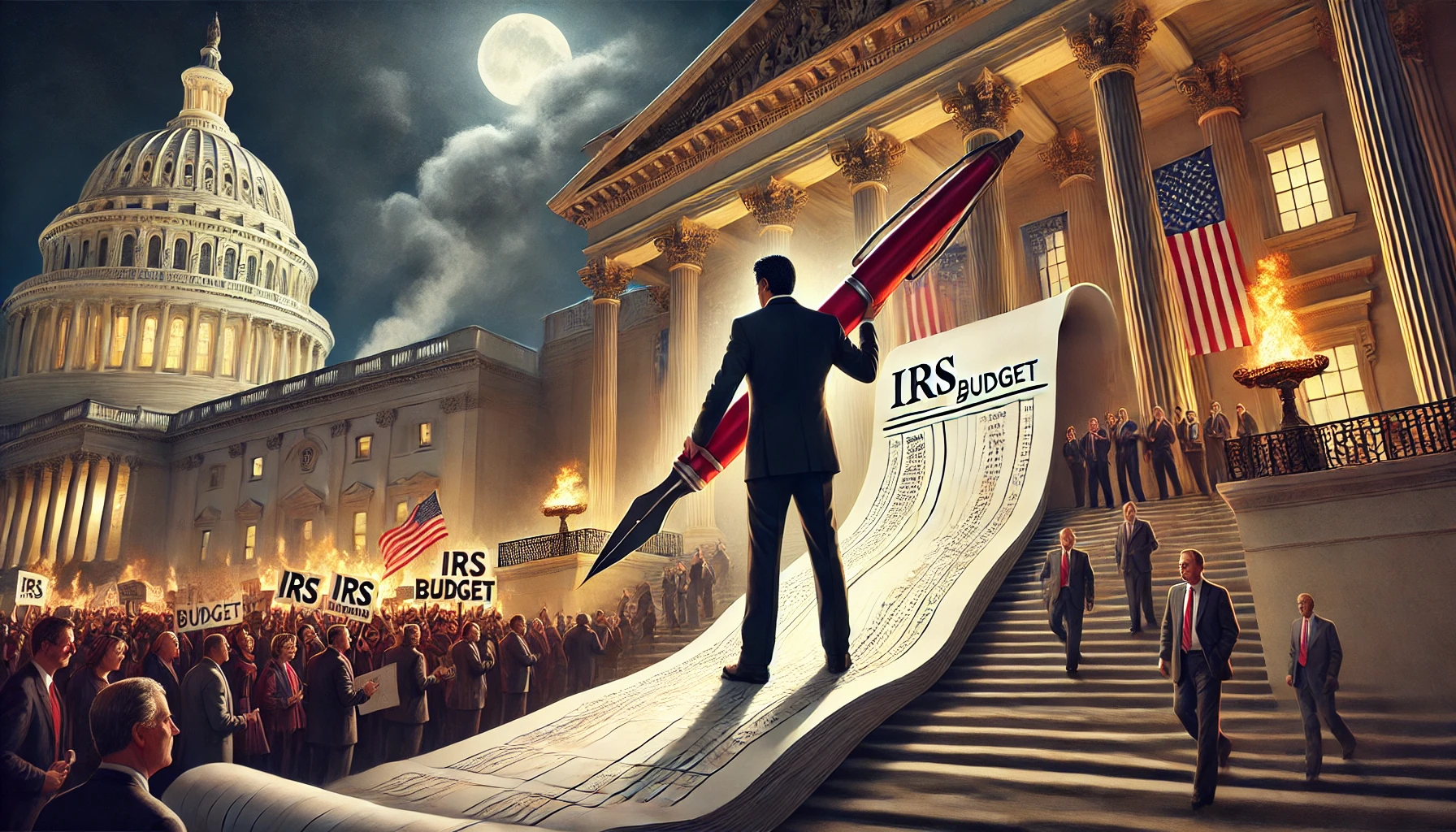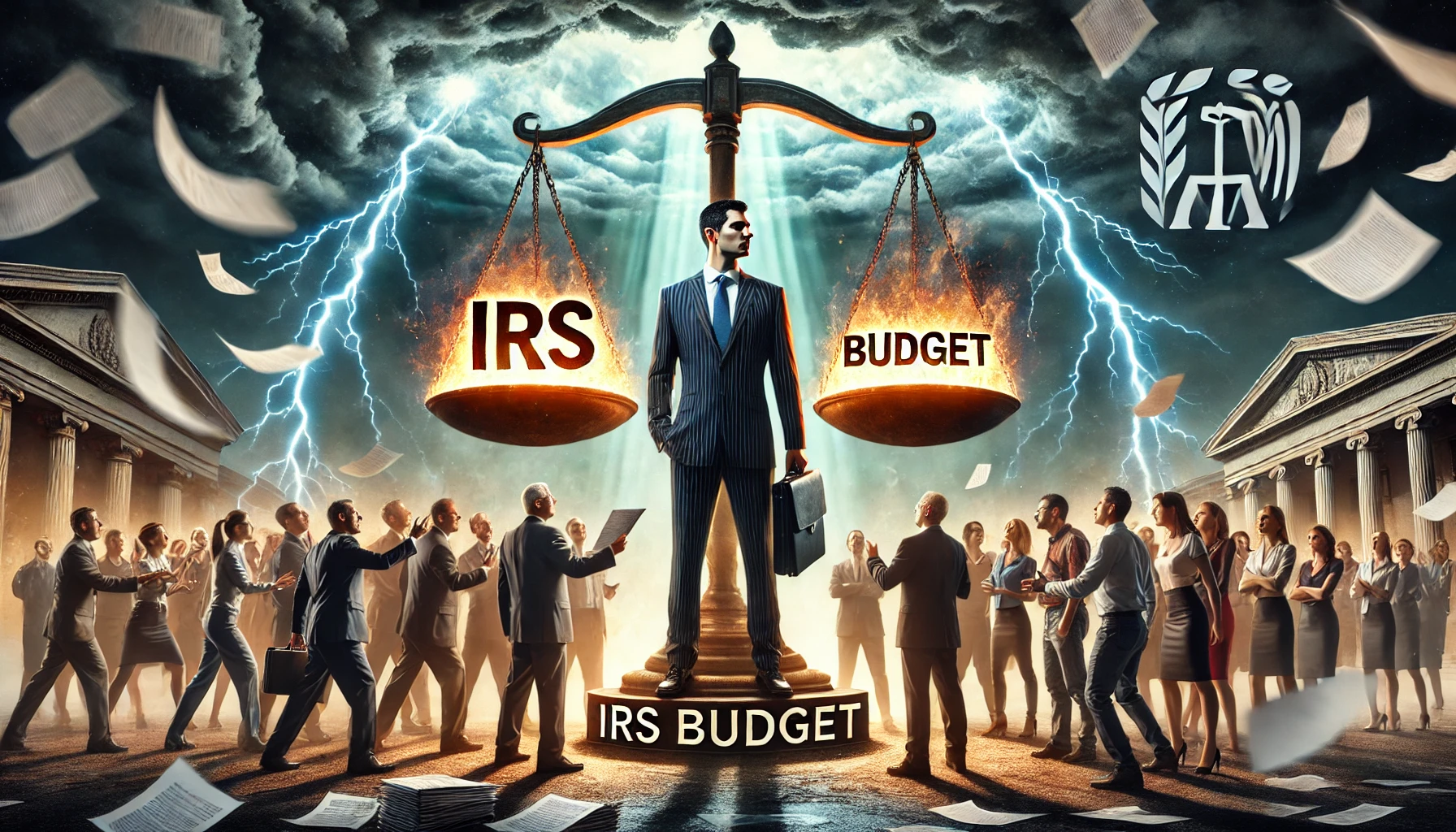Hailing it as a historic day for American taxpayers, the newly founded Department of Government Efficiency (D.O.G.E.) led by Elon Musk and Vivek Ramaswamy this week detailed its plan to aim for $2 trillion in federal agency budget cuts. One of the agencies Musk said was antiquated is the Internal Revenue Service (IRS).

IRS in the Spotlight
Elon Musk, the chief executive of Tesla, who has emerged as a symbol of D.O.G.E., has publicly blasted the I.R.S., describing it as a “mess” that needs major rework. He suggested developing a free tax-filing app, auditing the agency, and firing what he deems superfluous administrative personnel.
In a poll posted on social media platform X (formerly Twitter), Musk inquired if users preferred the IRS budget to be increased, decreased, maintained, or completely eliminated. A remarkable 60.6 percent of those responding favoured eliminating the IRS budget entirely, while 29.9 percent voted for cuts. Just 5.6% supported an increase, and 3.9% didn’t want any changes. The IRS is, however, seeking an extra $20 billion in funding, which has led to widespread debate regarding its efficiency and spending.
Other Agencies Under Consideration
Outside of the IRS, D.O.G.E. plans to audit budgets for several federal agencies. Among the targets is the Consumer Financial Protection Bureau (CFPB), an agency Musk indicated should be abolished. Critics say those functions could simply be integrated into other financial oversight agencies.
Musk’s co-leader on this project, Vivek Ramaswamy, has had some opinions about the Department of Education. Mirroring the views expressed by President-elect Donald Trump, Ramaswamy believes the department should be eliminated altogether. This echoes Trump’s long-standing railing against the federal education system as unnecessary and wasteful.
Defense Spending Also Under Review
The Department of Defense has also taken heat. Ramaswamy lambasted the Pentagon for squandering about $125 billion a year on bureaucracy. But Musk’s own SpaceX—which has a $3.6 billion defense contract—seems to be excluded from these proposed cuts. This seeming inconsistency has raised eyebrows, with critics questioning the neutrality of D.O.G.E.’s budgetary review process.
D.O.G.E.’s Involvement, Doubtful
D.O.G.E. is intended to simplify some government operations and cut excess spending, but critics argue that its function is superfluous. Others say the department’s goals could be duplicated by other federal agencies that work to streamline.
Impact on Dogecoin
D.O.G.E. is a nod to Dogecoin, a cryptocurrency Musk has often supported. Since Trump’s electoral victory, Doge’s market value has gushed, its flight of fancy inflating on the speculation regarding Musk’s position with the new administration. Though D.O.G.E. may have a place at the political table, talk of the coin at campaign rallies has apparently led to price spikes, which shows just how closely political developments are intertwined with movements in the crypto market.
The Bigger Picture
Yet D.O.G.E.’s attempts to slash spending strike a chord with some voters, but the move sparks wider debate about government priorities and accountability. Slashing federal budgets is no easy task, and critics say the cuts come with risks, including eroding key functions or leaving space for lack of oversight. Whether D.O.G.E., which has taken an ambitious approach, can deliver on its goals without disrupting key functions is still to be seen.

A Bold Gamble on Federal Reform Faces Praise and Scrutiny
Elon Musk and Vivek Ramaswamy’s leadership of D.O.G.E. strikes a daring approach to cleaning up federal bureaucracies and trimming the fat. But their approach has ignited debates over the future of key agencies and the fairness of proposed cuts. The initiative could also have an impact on government operations—and potentially Dogecoin—as it unfolds and is monitored by both supporters and skeptics.










